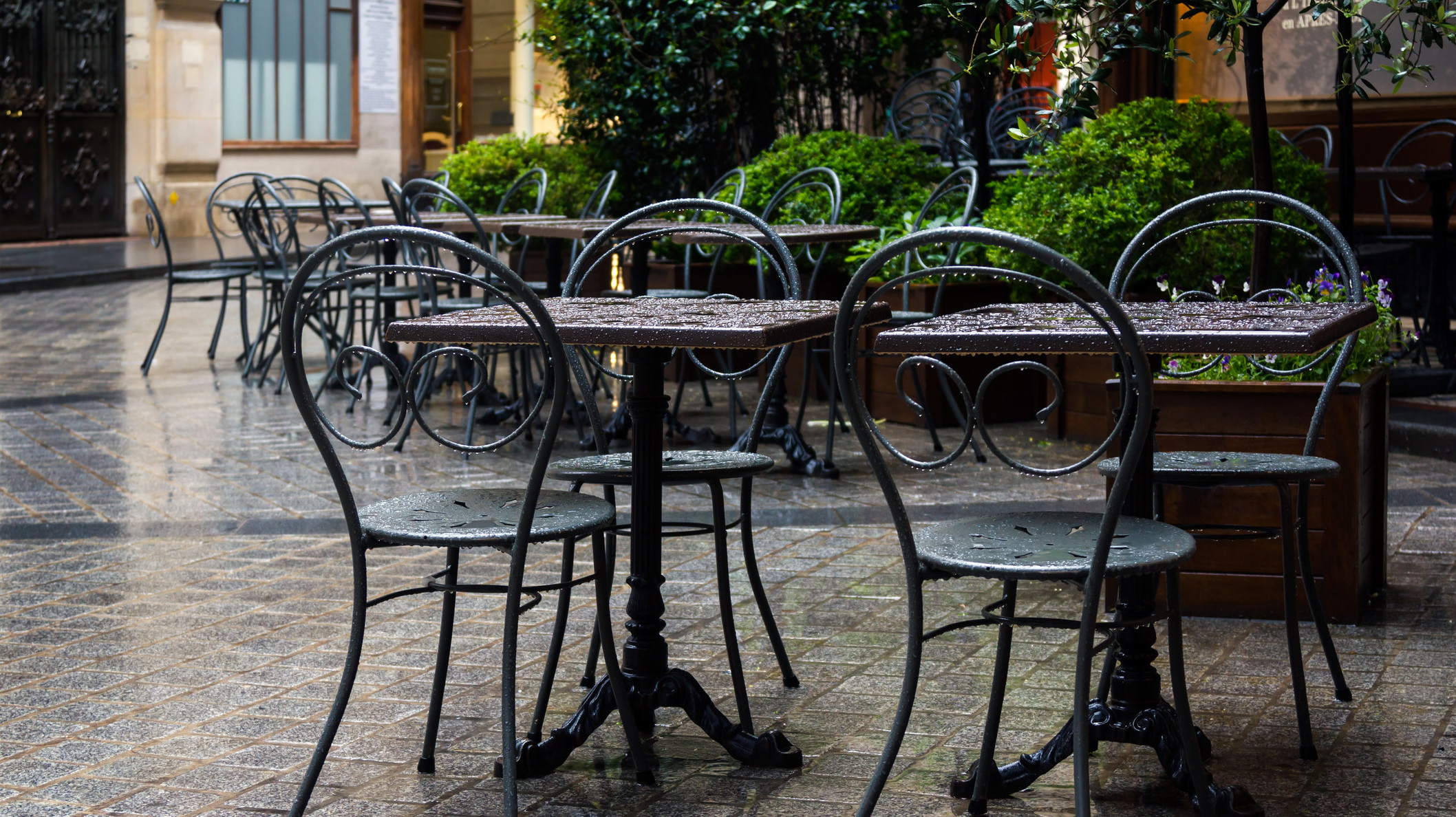Lousy Smarch Weather Affects Customers' Restaurant Reviews
Next time you're scrolling through effusively positive or negative Yelp reviews, you might consider cross-referencing their posting dates with weather records. Hospitality researchers from The Ohio State University found that weather is a contributing factor to customers' feelings about their restaurant visits, and that customers are more likely to negatively review a restaurant if they visited during bad weather.
Their study, which will be published in an upcoming issue of the Journal Of Hospitality & Tourism Research, found that bad weather puts customers in a bad mood, which may carry over to their attitudes toward a restaurant. Researchers examined comment/review cards from 32 Florida locations of a fast-casual restaurant and found "the odds of patrons leaving very negative comments versus very positive comments were 2.9 times greater on rainy days."
"Restaurants can't control the weather, but it may affect how customers review them," Milos Bujisic, co-author of the study and assistant professor of hospitality management at The Ohio State University, said in an OSU news release.
Bujisic notes the weather isn't the primary factor driving customer reviews; food, service, and atmosphere still matter. But the study's authors suggest that the weather is worth restaurant managers' attention if they want to potentially mitigate its negative effects on reviews. They suggest managers might encourage their staff to be more attentive on bad-weather days, which in Florida include not just rain but also extreme heat.
In another experiment, the study's authors gathered data from 158 people from around the country who'd eaten at a restaurant in the past 24 hours. They were asked about weather conditions during their visit, their mood, and then were asked what type of word-of-mouth review they would give the restaurant. Those who reported bad weather conditions were also more likely to be in a bad mood and to give the restaurant a less positive recommendation.
Because of the connection between weather and mood, Bujisic points out that restaurant staff may be less friendly to guests on bad-weather days.
"A rainy day may put employees in a bad mood and that will affect their service," he said. "Managers need to explain that to their employees and work to keep them motivated."
He suggests restaurants may want to consciously try to boost customers' moods on foul-weather days, whether that's through upbeat music or small freebies. Of course, if the food is abysmal and the service is lacking, expect bad customer reviews—rain or shine.
